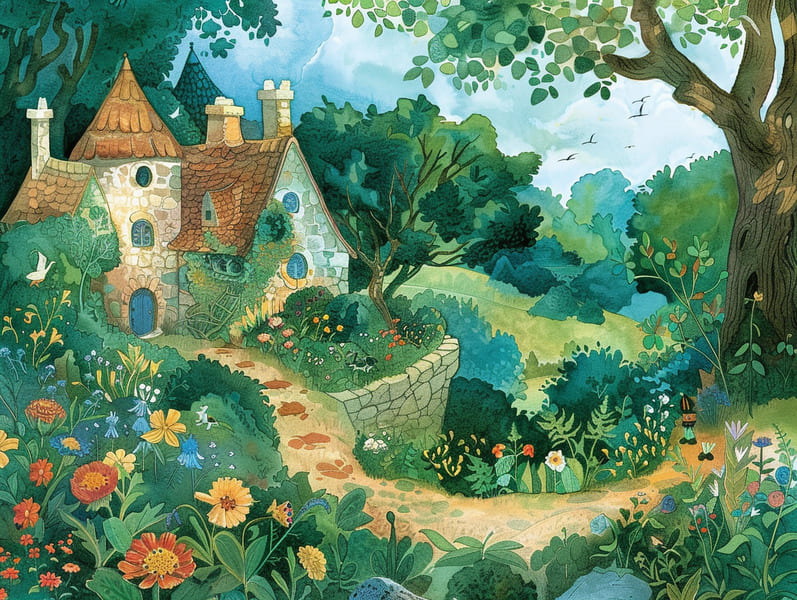Embracing the Magic of Bedtime Stories: Forming Beloved Occasions with Your Family
Embracing the Magic of Bedtime Stories: Forming Beloved Occasions with Your Family
Blog Article

The end of the day is a sacred time for moms and dads with their little ones. It’s a chance to ease into rest, cuddle up, and partake in the enchantment of bedtime stories.
For centuries, sleep stories for kids have been a treasured custom, offering more than just a way to rest. They provide an prospect for relationship building, education, and fostering dreams.
The Role of Bedtime Stories
Children's bedtime stories go beyond a way to end the day. They play a vital role in a child’s development and in building the family connection. Here’s why they matter:
1. Closeness Moments: Nightly storytelling develops a special loving connection between caregivers and children. It’s a moment of closeness that helps children feel loved and comforted.
2. Speech Improvement: Experiencing stories helps children develop their language skills. They learn new language, understand construction, and develop their attention and grasping abilities.
3. Fantasy and Imagination: Bedtime tales carry them to enchanted worlds, sparking imagination. They visualize characters, settings, and adventures, which sparks their innovation.
4. Emotional Development: Stories for children often present characters facing challenges and feelings. These stories help kids recognize and work through their own reactions, developing emotional understanding.
5. Intellectual Growth: Following a story helps children develop attention span, recollection, and reasoning skills. They pick up to follow lines of thought, remember details, and anticipate results.
How to Make Stories Part of Bedtime
Establishing a bedtime habit that includes sharing tales is easy and worthwhile. Here’s how to create a cherished part of your sleep-time tradition:
1. Pick a Cozy Area: Find a quiet place where you and your child can relax without noise. A peaceful bed or a cozy reading nook works wonderfully.
2. Set a Regular Time: Fix a specific time each night for reading. Consistency helps children be accustomed and makes the habit more sustainable.
3. Choose Suitable Stories: Pick tales that fit your child’s developmental stage. Preschoolers might be engaged by visual books with uncomplicated narratives, while more mature kids may like longer stories with more complex plots.
4. Make the Story Interactive: Try to the tale be captivating by using different voices for characters, adding special sounds, and getting your child to take part. Ask queries about the story to keep them focused.
5. Make a Calm Setting: Turn down the lights, use whispers, and create a soothing environment to help your child wind down.
Best Sources for Bedtime Stories
There are numerous options where you can find great bedtime stories for children. Here are some ways to consider:
1. Children’s Books: Go to your local library or bookstore to find a wide selection of bedtime stories for kids. Going through the choices together can be a fun activity that also helps children to select stories that appeal to them.
2. Web Sources: There are many internet sites that offer free bedtime stories. Sites like kids' story platforms provide a variety of short stories for kids that you can get for free. These platforms are great for finding new and diverse stories without payment.
3. Audio Stories and Apps: For nights when you’re too fatigued to read, look into audiobooks or storytelling apps. These can provide a relaxing voice to read your child a story, ensuring they still get their bedtime story fix. Apps often offer interactive elements that can capture their attention further.
4. Personal Stories: Compose your own stories matching your child’s likes. Personalized stories can be especially engaging and meaningful. You can engage your child in the development process, making them a part of the adventure.
How Short Stories Help
Short bedtime stories are extremely advantageous for bedtime. They provide all the good points of longer stories but are more succinct, making them perfect for calming down before sleep. Here’s why short stories are a ideal choice:
1. Clear and Simple: Brief tales are simple and understandable for kids, even after a long day. They can promptly grasp the line and enjoy the story without losing focus.
2. Fast Engagement: Short tales readily engage children, keeping their focus and creativity. This makes them perfect for keeping bedtime habits simple yet enjoyable.
3. Variety and Flexibility: Brief tales offer for variety in your bedtime books. You can get a different story each night, keeping the ritual interesting and exciting for your child.
4. Efficient Use of Time: For busy parents, short stories are a time-efficient way to ensure children still get their nightly dose of storytelling. They fit well into a tight schedule while still offering the full advantages of a bedtime story.
The Wonder of "Read Me a Story"
The simple phrase, "Read me a story," can unlock a world of magic for children. Complying to this request not only meets a child’s need for attention and engagement but also builds lasting times. Here’s why it’s special:
1. Link: Reading aloud to your child fosters a deep emotional attachment. It’s a time for closeness, sharing, and bonding.
2. Legacy: Building a bedtime story custom creates a valued tradition that children look forward to every night. It’s a routine that can be handed down through generations.
3. Joint Growth: As you tell tales, you’ll see your child’s maturation and growth. Their engagement, reactions, and understanding of the stories find it here grow, offering insights into their developing minds.
4. Protective Space: Bedtime stories provide a safe space for children to examine emotions, face fears, and find comfort in the recognizable presence of a parent.
Final Note
Children’s bedtime stories are a important tool for supporting a child’s evolution and crafting unforgettable occasions of bonding.